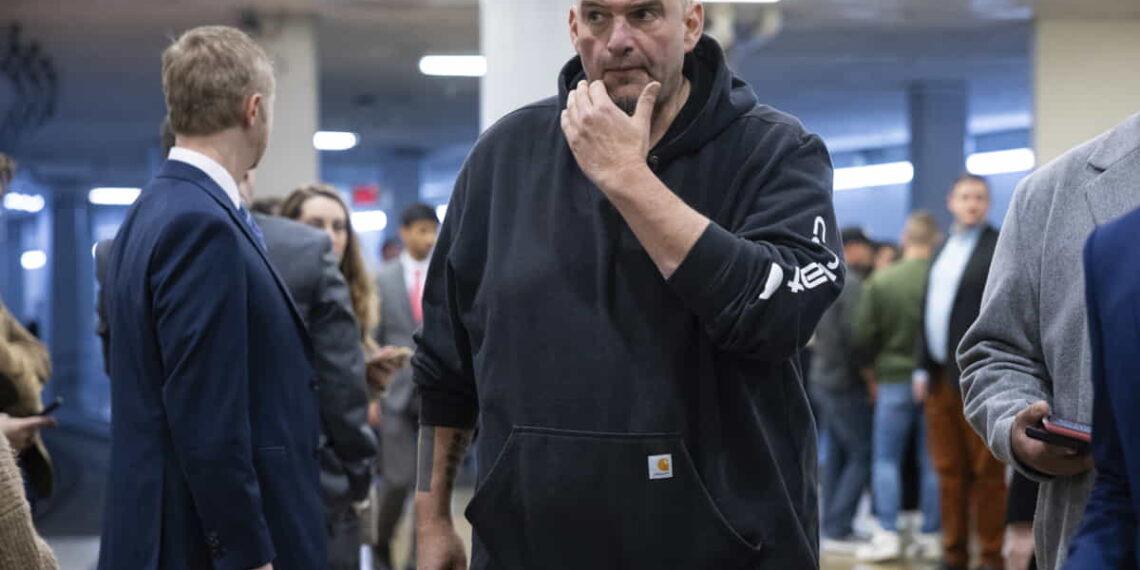Laken Riley Act Gains Momentum, with Democratic Support
A notable shift in political attitudes toward immigration is reshaping the legislative landscape, as Democrats increasingly align with Republican-led enforcement measures. The movement highlights how border-related concerns, pivotal in securing Republican control of the White House and Senate, are influencing bipartisan cooperation.
Democratic Support for the Laken Riley Act
On Tuesday, 48 House Democrats voted to advance the Laken Riley Act, a crackdown on illegal immigration. This marks an increase from the 37 Democrats who supported the bill last March. The legislation, named after a Georgia nursing student murdered by an undocumented immigrant, mandates detention for undocumented individuals charged with theft or burglary.
The Senate will take up the bill on Friday, with key Democratic senators, including John Fetterman (PA) and Gary Peters (MI), signaling their support. Their backing increases the likelihood of overcoming a filibuster and passing the bill, which President-elect Donald Trump is expected to sign into law.
A Strategic Shift in Democratic Messaging
Historically, Democrats criticized measures like the Laken Riley Act as politically motivated “messaging bills.” However, growing concerns about border security and the party’s setbacks in southern border regions are prompting a change in tone.
“We need to take a different approach with immigration,” said Rep. Nikki Budzinski (D-Ill.), one of the Democrats who voted for the bill. “We have to fix this system and do more than just one piece of this.”
Rep. Henry Cuellar (D-Texas) emphasized the political implications of ignoring voter concerns, citing GOP gains in South Texas as a wake-up call. “We don’t want the folks to shift downballot, too,” he remarked.
Key Players in the Senate Debate
Among the Democratic senators expected to support the Laken Riley Act are:
- John Fetterman (PA): Up for reelection in 2028, with presidential aspirations not ruled out.
- Gary Peters (MI): Facing reelection in 2026, Peters has been a vocal proponent of pragmatic legislative approaches.
- Jon Ossoff (GA): A potential supporter, signaling bipartisan momentum for the bill.
Newly elected senators Elissa Slotkin (MI) and Ruben Gallego (AZ) previously supported the measure as House members, further bolstering the bill’s chances of Senate passage.
Diverging Democratic Perspectives
Even Democrats opposed to the bill are softening their rhetoric, focusing on process-related concerns rather than outright rejecting enforcement. Purple-district Rep. Gabe Vasquez (D-N.M.), who voted against the measure, stated, “Violence in this country is unacceptable no matter who commits any act of violence, and we also have to have a strong foundation for the rule of law.”
Republican Strategy and the Road Ahead
Republicans see the Laken Riley Act as an opportunity to spotlight immigration as a legislative priority and force Democrats to take a stand. “People are going to have to make a decision, and it’s now a bipartisan bill,” said Sen. John Barrasso (R-Wyo.).
As President-elect Trump prepares to enact sweeping immigration reforms through executive actions, Republican leaders are leveraging the momentum from the Laken Riley Act to push broader policy changes. However, reconciliation rules limit their ability to enact sweeping restrictions without Democratic cooperation.
Challenges and Opportunities
Despite the growing bipartisan support, enacting comprehensive immigration legislation remains complex. Republican leaders are also strategizing on how to prioritize the remainder of their border policy agenda. Legal challenges to Trump’s executive actions are anticipated, underscoring the need for legislative backing.
“We’re all belts and suspenders,” said Michael Hough, director of NumbersUSA, an immigration restrictionist group. “Executive actions are great, because it’s the immediate fix, but it’s not a permanent one. We still want to see legislative changes go through.”
Conclusion
The Laken Riley Act represents a pivotal moment in U.S. immigration policy, as bipartisan support signals a shift in addressing voter concerns over border security. While challenges remain, the bill’s progress reflects a growing willingness among lawmakers to adapt to the changing political and electoral landscape.
This article was rewritten by JournosNews.com based on verified reporting from trusted sources. The content has been independently reviewed, fact-checked, and edited for accuracy, neutrality, tone, and global readability in accordance with Google News and AdSense standards.
All opinions, quotes, or statements from contributors, experts, or sourced organizations do not necessarily reflect the views of JournosNews.com. JournosNews.com maintains full editorial independence from any external funders, sponsors, or organizations.
Stay informed with JournosNews.com — your trusted source for verified global reporting and in-depth analysis. Follow us on Google News, BlueSky, and X for real-time updates.














